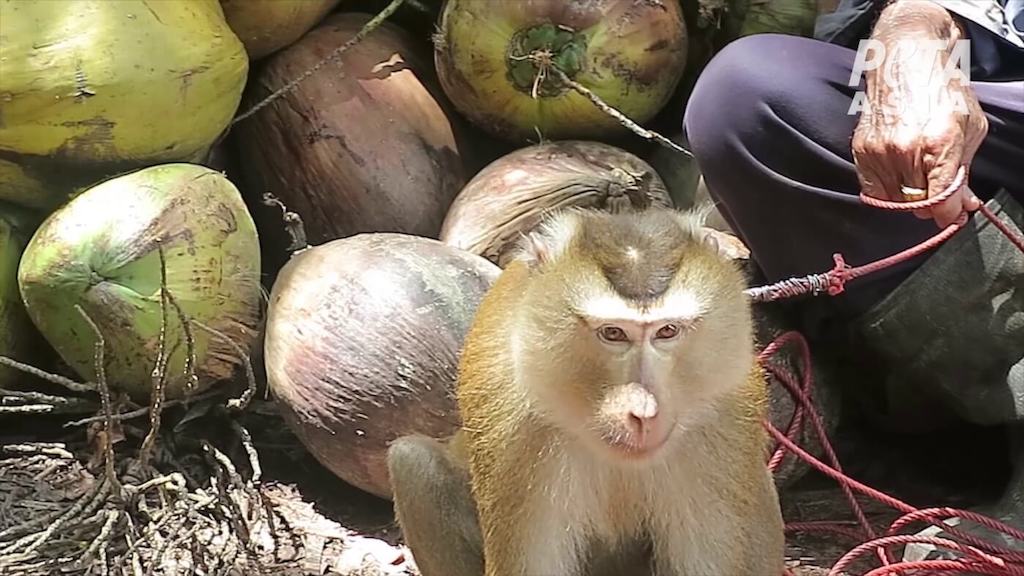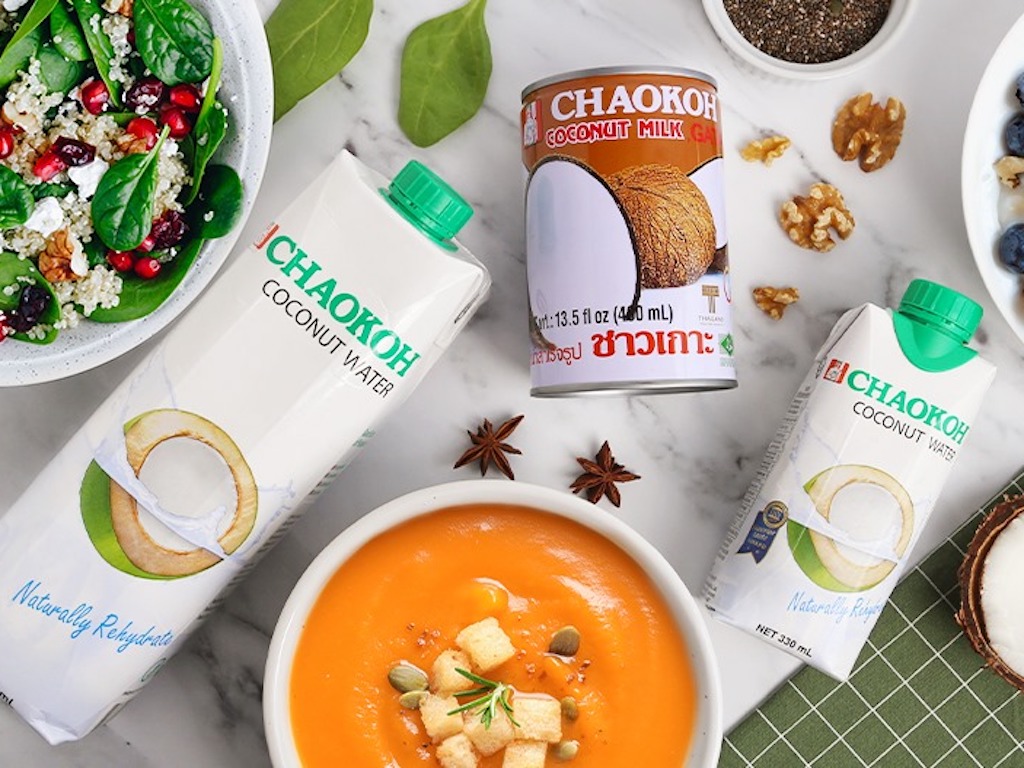3 Mins Read
Costco, the second largest U.S. retailer after Walmart, has dropped a brand of coconut milk after a PETA investigation revealed that monkeys in Thailand have been abused and forced to work and pick coconuts to produce their products. Suppliers of the brand, Chaokoh, were also found to have forced monkeys to participate in inhumane circus-style shows in order to earn more from their animal abuse practices.
Following an investigation by animal welfare nonprofit PETA Asia, grocery giant Costco has dropped Chaokoh, the brand revealed to be using coconuts sourced from farms complicit in forced monkey labour. Disturbingly, eight different suppliers of the brand visited by the investigators have been keeping monkeys in chains and abusively trained them to climb trees and pick coconuts for a number of Chaokoh’s products, including coconut milk, cream, water, shredded coconut meat, flour and oil.
The same farms are also likely the suppliers of other Thai coconut brands, suggesting that many brands from the country are also complicit in monkey forced labour and other abusive and inhumane practices.

“According to an industry insider, most coconut that comes from Thailand was picked by monkeys. So if you purchase Chaokoh or coconut milk, oil, meat, or flour products from Thailand, you may inadvertently be supporting this cruelty,” the PETA report wrote.
Other retailers have also made the decision to stop stocking Chaokoh products since the investigation, including Cost Plus World Market, conglomerate Ahold Delhaize and its brands that includes Giant Food in the U.S. and Albert Heijn in the Netherlands, Sears and H-E-B.
According to an industry insider, most coconut that comes from Thailand was picked by monkeys. So if you purchase Chaokoh or coconut milk, oil, meat, or flour products from Thailand, you may inadvertently be supporting this cruelty.
PETA Asia Investigators
Walgreens Boots Alliance has taken their initiative even further, committing to cutting ties with Chaokoh and any other coconut food and drink brands of Thai origin across its over 9,000 Walgreens locations in the U.S. and almost 3,000 Boots stores in the U.K. A number of other major U.K. retailers have also suspended Chaokoh from its list of products, including Sainsbury’s, Asda, Tesco, Waitrose and Co-op.
“Following PETA Asia’s investigation, more than 25,000 stores will no longer purchase this brand’s products, and the majority will no longer buy any coconut products derived from Thailand monkey labour,” PETA announced.
Other coconut-growing regions harvest coconuts using humane methods such as tractor-mounted hydraulic elevators, willing human tree-climbers, rope or platform systems, or ladders, or they plant dwarf coconut trees.
PETA Asia Investigators
Not only are the monkeys illegally abducted, fitted with metal collars to keep them chained and forced to climb up and down trees to collect coconuts, the investigators uncovered that many of the trainers are also forcing the captive monkeys to perform in cruel shows for human entertainment in order to earn more money from these animals.
For now, the report advises that in order to avoid coconut products that could potentially be fuelling the animal abuse, consumers can choose brands that use coconuts harvested in other regions, such as Colombia or Hawaii.
“Other coconut-growing regions harvest coconuts using humane methods such as tractor-mounted hydraulic elevators, willing human tree-climbers, rope or platform systems, or ladders, or they plant dwarf coconut trees,” wrote PETA.
Lead image courtesy of Chaokoh.




